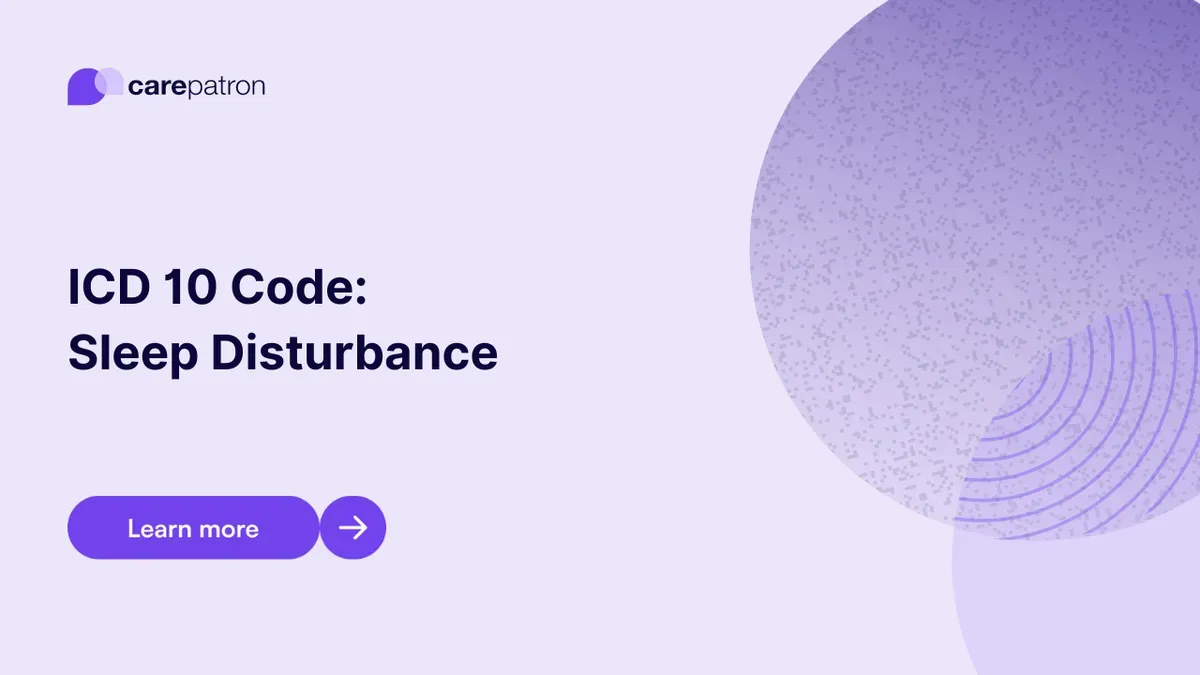
Sleep Disturbance ICD-10-CM Codes
Read this short guide and learn about sleep disturbance ICD codes you can use. Dive into billing and clinical information.
Use Code
Commonly asked questions
No. There are more, but they are specific to certain sleep disorders or other conditions affecting sleep. The codes we listed above are the general ICD codes for this problem.
People not getting enough sleep may be at risk of dementia, obesity, diabetes, and even heart disease. It’ll also be easier for them to fall into depression.
It depends on what causes these disturbances, but treatment can include using a CPAP machine for those with sleep apnea, sleeping pills and supplements, changing sleep routines, practicing good sleep hygiene, and cognitive behavioral therapy.
EHR and practice management software
Get started for free
*No credit card required
Free
$0/usd
Unlimited clients
Telehealth
1GB of storage
Client portal text
Automated billing and online payments
